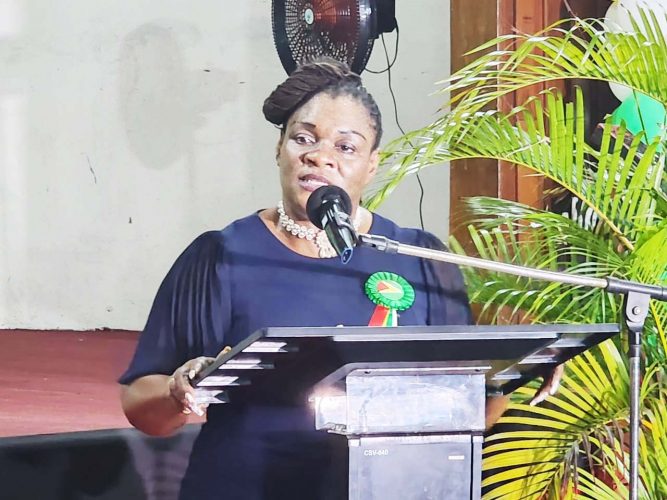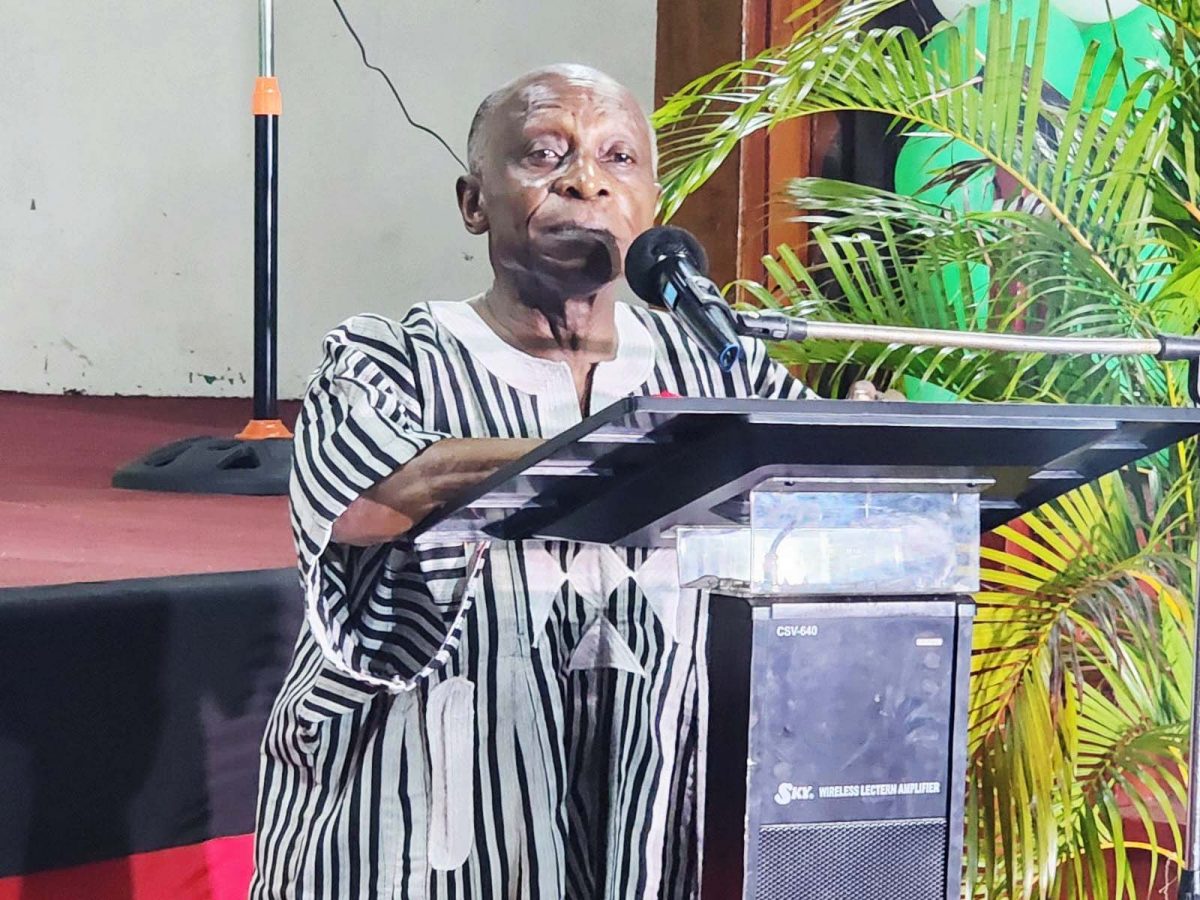By Antonio Dey
Former Finance Minister Carl Greenidge wants policymakers to revisit Guyana’s current labour system as he posits there should be equilibrium in wages and salaries in both public and private sectors.
The seasoned politician who served as Guyana’s Finance Minister from 1983-1992 under PNC administrations, made these remarks yesterday during day one of the Guyana Trades Union Congress 5th Triennial Delegates Conference under the theme “Advancing the Workers’ Struggle, for Social & Economic Justice”.
Greenidge told the gathering that in light of Guyana’s nascent oil and gas sector, there has been a significant emergence of foreign companies which are employing both local and foreign nationals.
However, the former Foreign Affairs minister expressed grave concern over the disparities in wages and salaries between local and foreign nationals, as Guyanese are reportedly earning less than foreign nationals which he deemed “economically unjust.”

“There are instances where contractors from foreign companies are selectively awarding contracts to their employees, and if Guyanese object to it, their source of incomes are threatened and even their lives.”
“This is an impunity on our labour rights. It is quite unfair for foreign nationals to treat us that way in our own country, and we cannot do anything about it. Well, I say this is totally unjust and we cannot tolerate that in our country.”
“There are large numbers of Guyanese who are eager to take up job opportunities especially in the construction industry and I am not discriminating against the Venezuelans nor any other nationality, but we must have equal opportunities,” Greenidge reasoned.
The economist posited that there should be equilibrium in Guyana’s labour force as this state of affairs is a total violation of international regulations which govern trade unionism and labour laws.
“When we speak about sustainable development goals, it is more than that, we need to address this issue of an equitable labour force,” he said
“People often ask, well, why is this happening in Guyana? However, it is useful to recognise that whilst that SDG initiative wasn’t perfect, it did help to address concerns such as getting people out of poverty which of course is done by ensuring that the most girls, young women and boys equally and fully benefit from the opportunities given to them”.
The Former Minister of Foreign Affairs and 2nd Vice President under the APNU+AFC government said that while the world at large is making advancements in science, technology, medicine, and other fields in academia, he believes Guyana must pay key attention to sustaining an equitable financial strategy that can benefit the working class.
He noted that despite the country’s evident progress and generation of oil revenues from daily production, the extant reality is that “many public servants are surviving on minimal incomes.”
Due to the constant spike in commodities and inflation rates, the former Finance Minister believes that Guyanese deserve a better standard of living in what he termed “a sustainable and equitable economy.”
While Greenidge does not oppose the influx of foreign nationals coming to Guyana in pursuit of better job and living standards, at the same time Guyanese must not be disenfranchised in relation to these opportunities.
He believes that while the government is on the tangent of multilateralism, when it comes to addressing critical areas such as food security, climate change, health security, or education, it must not neglect trade union bodies which play a pivotal role in the labour movement.
Greenidge posited that an effective labour force can only be procured once policy makers develop viable mechanisms which present equalities in relation to income, housing, education, and labour.
Inequalities
“We need to reduce inequalities in terms of wages, persons must be able to not only rent houses because of low-income generation, but once they have high income generation, they undoubtedly can own their own homes and moreso acquire a better living standard.”
“We see how COVID-19 has impacted many global economies, however many of these countries had to devise strategies so that their citizens will not remain devastated because many people lost their jobs, schools and health care systems were disrupted, not forgetting supply chains, but when we speak about sustainable development goals, we also cater for the eventuality of a crisis,” Greenidge noted.
He remained adamant that “governments have a right to cater for the needs of citizens as it is their duty.”
“In a thriving economy such as Guyana, there should be no reason why the needs of public servants should not be prioritized.”
Greenidge who is currently the Advisor on Borders at the Ministry of Foreign Affairs, said that it is time for the government to revisit its labour laws and ensure that Guyanese exist under an all-inclusive economic society.
Meanwhile, President of the Guyana Trade Unions Congress (GTUC), Coretta McDonald, touched on the government’s attitude to the organisation and public servants.
She posited that the incumbent administration has been evasive on the subject of the collective bargaining agreement which speaks to better working conditions, salaries and wages for public servants.
“Now, we have been deemed the fastest growing economy in this world. Yet many of our public servants especially teachers could hardly afford livable conditions due to their salaries.“Many of them are working under harsh conditions which are unacceptable. When we look around and see what is happening to our human resource, we see the how prosperous we are in our financial resources and wonder where the development is going,” McDonald posited.“We hear again, about the hundreds and thousands of millions of US dollars that are being withdrawn from the consolidated fund [but] look what is happening to our teachers and nurses, they are migrating but we hear about how well we are doing.”The GTUC President lamented that the government has not been forthcoming in relation to addressing a better income for teachers and many public servants, as the promises made by the Ali administration are yet to be delivered.“I want to say to you while we are yet to hear from our government, as a union we must fight for the rights of our people, but we have a larger fight before us, the invasion of Venezuelans into this country.”“Many of our jobs are given to foreigners, including the Venezuelans and we are here struggling to get jobs, we see houses and lands being given to them while some of us are being disenfranchised.” “We are not against migrants being entitled to the houses and land but what about us as Guyanese?” and that is why they think they can take advantage of us but today not a blade of grass are we giving up,” McDonald asserted. She noted that while there is a struggle to achieve equality under the current regime, other union organisations are being urged not to remain silent but to fully represent the rights of workers both in the public and private sectors. Former Finance Minister Carl Greenidge






